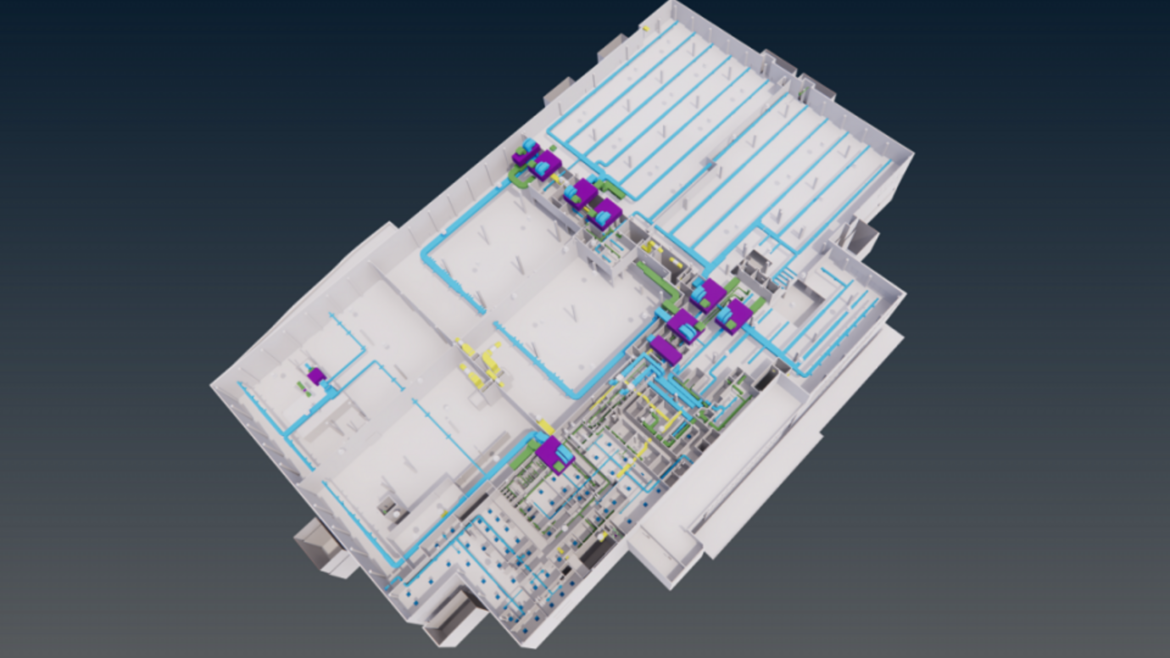Companies news • Analyses & Studies
Leveraging real-time data and digital twins to drive sustainability

Smart buildings have emerged as a major driver for sustainable infrastructure – enabling improvements in energy efficiency, occupant comfort, and operational optimization. In this journey of digital transformation, real-time data and digital twins have become indispensable in unlocking the full potential of smart buildings. By harnessing these technologies, building owners and facility managers can enhance building and operational performance while also aligning with sustainability and ESG initiatives.
The benefits of real-time data and digital twins
Real-time data refers to the continuous and immediate flow of information from IoT sensors and devices in smart buildings. This data provides valuable insights into the building’s energy consumption, environmental conditions, and occupancy patterns. Digital twins, on the other hand, are virtual replicas of physical buildings that simulate their behavior and characteristics in real-time. By integrating real-time data with digital twins, facility managers gain a comprehensive understanding of their assets that empowers data-driven decision-making and facilitates efficient building operations.
One of the key advantages of real-time data and digital twins is the optimization of energy consumption. Continuous monitoring and analysis enable prompt identification of energy inefficiencies, while digital twins simulate different scenarios to predict the impact of energy-saving measures. This allows building managers to make informed adjustments to HVAC systems, lighting, and other energy-consuming systems, leading to reduced energy costs and carbon footprints.
In addition to energy efficiency, real-time data and digital twins contribute to enhanced occupant comfort and productivity. By monitoring parameters like temperature, humidity, and air quality in real-time, adjustments can be made to HVAC systems to maintain optimal indoor environmental conditions. Improved occupant comfort has not only been shown to enhance productivity, but also aligns with the social aspect of ESG objectives.
Predictive maintenance and asset performance management are also areas that are completely transformed by real-time data and digital twins. Continuous monitoring allows for the early detection of anomalies or performance degradation in systems and equipment, while digital twins enable predictive simulations for future asset status. These technologies allow facility managers to transition maintenance practices from corrective to predictive. Proactive maintenance reduces downtime, extends equipment lifespan, and optimizes resource allocation, all of which support sustainability goals.
Enabling effective ESG reporting and compliance:
A data-centric approach to building management provides a comprehensive and real-time view of building performance metrics – including energy consumption, carbon emissions, and occupant well-being indicators. ESG reporting and compliance innately demands high accuracy and reliability in the data it requires, which makes it a perfect match for the extensive data foundation that digital twins are built upon. This enables organizations to measure, track, and report on their sustainability efforts and ESG initiatives promptly, accurately, and transparently.

Akila harnesses the power of real-time data and digital twins to revolutionize building management
Akila is an innovative software solution that optimizes smart building performance and promotes sustainability by leveraging real-time data and digital twins. With continuous monitoring of energy consumption, environmental conditions, and occupancy patterns, Akila enables informed decision making to reduce operational costs and maximize energy efficiency.
The creation of accurate digital twins allows for predictive analysis and scenario testing, ensuring optimal outcomes for energy-saving measures. Real-time data enables proactive adjustments to HVAC systems, enhancing occupant comfort, productivity, and well-being. By detecting anomalies and degradation through data analysis, Akila enables proactive maintenance, minimizes downtime, and optimizes asset performance.
Akila also facilitates accurate ESG reporting, empowering organizations to effectively measure, track, and report their sustainability efforts with BI templates built to interface directly with ESG and sustainability standards.
Real-time data and digital twins are revolutionizing the way smart buildings operate by optimizing energy efficiency, enhancing occupant comfort, and promoting operational excellence. By embracing these technologies, Akila helps facility managers create more efficient, comfortable, and sustainable buildings.
SOURCE : Akila


